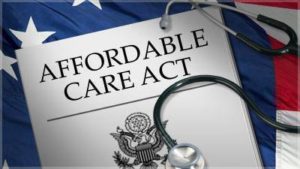Congressional Republicans Sidestep Trump to Shore Up the Affordable Care Act
 By the C|C Whistleblower Lawyer Team
By the C|C Whistleblower Lawyer Team
In the wake of their failed seven-year effort to repeal and replace the Affordable Care Act, Congressional Republicans are now engaged in a bipartisan effort to save the law that has helped insure millions of Americans, including their own constituents. The retention of cost-sharing reduction payments—which reimburse insurers for cutting deductibles and other out-of-pocket costs for millions of low-income people—lies at the heart of the effort.
On Tuesday, Senator Lamar Alexander of Tennessee announced that the Senate Health, Education, Labor and Pensions Committee, which Lamar chairs, will hold bipartisan hearings in September to discuss “the actions Congress should take to stabilize and strengthen the individual health insurance market so that Americans will be able to buy insurance at affordable prices in 2018.” Lamar also publicly urged President Trump to continue making cost-sharing reduction payments to insurance companies in the interim period. For his part, Trump has called for letting the Affordable Care Act implode, apparently unconcerned that such an implosion would cause millions to lose their health insurance.
Mirroring the Senate’s efforts, a bipartisan group in the House dubbed the “Problem Solvers Caucus” has announced agreement on a bipartisan set of proposals to revise the Affordable Care Act and stabilize insurance markets. The proposals include funding the cost-sharing reduction payments and exempting businesses with fewer than 500 employees from the Act’s requirement to offer health insurance to workers.
If Congress does not act to strengthen the individual health insurance market, millions stand to lose coverage as a result of premium increases. Insurers in several states are threatening to raise premiums on plans by as much as 34%. Several companies have cited ongoing uncertainty about cost-sharing reduction payments as a factor contributing to the increases.